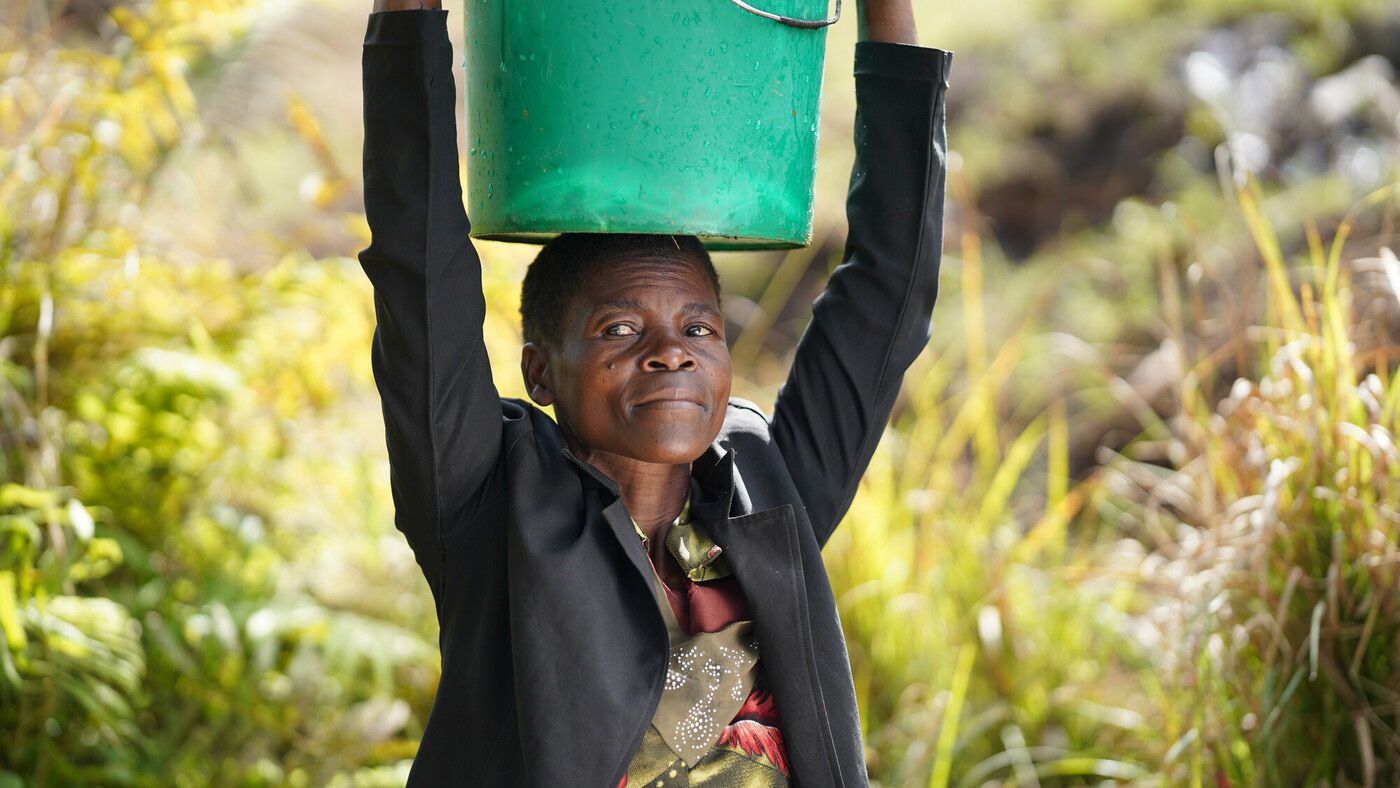Peter Heaney, Trócaire’s Head of Region for Northern Ireland, recently returned from Rwanda where he saw first-hand the problems facing rural communities....
RWANDA has once again been in the news in recent days thanks to the UK government’s continued attempts to use the country as a solution to its own international humanitarian obligations to refugees. But as the mentions of Rwanda reach a peak in the UK press not seen in decades very few of the words printed talk about the issues actually being faced by those who live in Rwanda.
This month I visited Trócaire’s partners in Rwanda and spent time talking to some of those who live in rural communities there. As I climbed a steep hill with Fred Rwibasira from the partner organisation Duterimbere the rain began to fall – he turned and smiled and said ‘rain is blessing’ but unfortunately that’s not always true. The muddy path that led past terraces of young maize and banana trees became slick and slippery. By the time we reached the top and shook hands with Salmon Jyambere who we had come to meet, the rain was torrential.
It is a sombre experience standing in the ruins of a man’s home. Salmon had lived and farmed on this terraced hill for 17 years. Then one night, he explained, the rain came in a torrent down the slope behind his house, first flooding it and then undermining the clay brick walls until they collapsed. What was left of those walls, lost the shape of bricks and collapsed further into mud under our feet as we spoke. Only the front wall remained standing.
This was not a freak event, a rare catastrophe that could be avoided in the future. The water that carried away his home, his possessions, even his daughter’s wheelchair, was at that very moment coming again, this time bringing more water than his crops in the surrounding fields needed. It was, as we spoke, stunting their productivity, impacting on his income and eroding his ability to cope with the shocks his family faced.
Trócaire’s partners like Fred and Duterimbere have some of the answers. They can help communities like Salmon’s adapt to the changing and more extreme weather they face, working alongside them to grow more resilient crops, learning how to slow the course of water and save precious topsoil from getting carried away and helping respond with relief when disaster does strike.
30,000 people have now been killed by Israeli forces in #Gaza. This is a war crime.
— Trócaire (@trocaire) February 29, 2024
Imagine this was happening in Ireland.#CeasefireNOW pic.twitter.com/Ylx2gX2o4H
Salmon is part of a project which Trócaire are working on to empower communities to help develop their own solutions to these problems, building their capacity and ensuring that the most effective solutions are employed as a result.
However, despite the positive steps that his community are taking to counter the challenges they are facing, Salmon is a man who knows where to look for bigger solutions; and culpability. He knows the challenges that he is facing, the loss that he has borne with the destruction of his home, is the fault of industrialised nations and he also knows the best long-term answers lie with them also.
As we left, Fred paused to point out a river; a roaring torrent of brown, freshly filled with rain and topsoil washed off the terraces where Salmon and his neighbours make their livelihoods. Unless industrialised nations act to tackle the climate crisis, the situation across the hills of Rwanda will only become increasingly difficult.
So, perhaps the question we should be asking is not whether the UK should be trying to house refugees in a country over 4,000 miles away and which already accommodates over 100,000 refugees from the Democratic Republic of Congo and Burundi. Instead, a far more important question for us to ask decision-makers is the question that Salmon, Fred and many others in Rwanda would want us to ask. Are they doing enough to pay for the loss and damage that is being wrought on vulnerable communities through climate change? Are they doing enough to stop it getting worse year on year?
To find out more about Trócaire’s work or to make a donation to the
Lenten Appeal visit www.trocaire.org or call 0800 912 1200.







